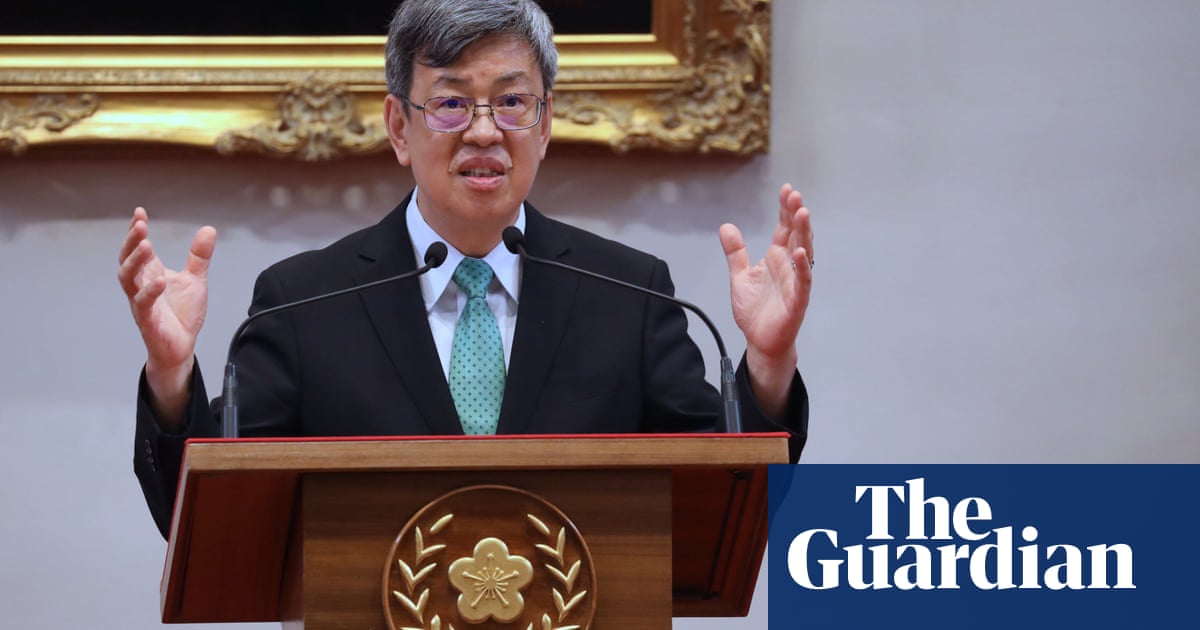As more develops about the US defense secretary, Pete Hegseth, and his repeated disclosures of sensitive military intelligence in unsecured Signal group chats, there are growing concerns his behavior has weakened the Pentagon in the eyes of its foreign adversaries and made him and his entourage a top espionage target.
Allies, already concerned by Donald Trump’s aggressive tariffs, have also begun to see the US as an intelligence-sharing liability. There are fears that the mounting firings and leak inquiries in Hegseth’s orbit, along with his inability to manage these internal crises, exposes the entire global US war footing – especially, if a geopolitical and external crisis comes across his desk.
“[What if] a foreign entity, whether it be a state actor or non-state actor, is able to intercept the movements of troops or department personnel, or something like that, capture them and hold them to ransom,” said Kristofer Goldsmith, an Iraq war veteran and CEO at Task Force Butler. “That kind of thing could very easily happen.”
Earlier in the week, news broke that Hegseth had personally created a Signal group chat including his wife, brother and about a dozen other people who he then texted highly sensitive information on active strikes in Yemen. Previously, he discussed similar intelligence in a group chat on the same app, which included top officials in the Trump administration and a journalist from the Atlantic.
Former officials serving in national security positions under Joe Biden’s administration also told the Guardian on background that the situation is perilous and that Hegseth has endangered the secrets of the defense department and the White House. One person said Russian and Chinese spies were no doubt directly targeting susceptible people in Hegseth’s inner circle.
Goldsmith, a threat intelligence expert, said there were many scenarios wherein a foreign government could gain access to those chats, without the need to directly compromise Hegseth’s devices.
“Pete Hegseth is texting his wife and his wife is posting on Instagram, clicks a link, and gets malware on her phone,” said Goldsmith, describing a hypothetical scenario. “Then the Chinese or the Iranians or the Russians just happen to be like, ‘Oh, shit, we’ve got Mrs Hegseth, [without] even targeting her.’”
To Goldsmith, Hegseth, who came into power on the heels of publicly characterizing the Pentagon as a “woke” shambles after years of ignoring “war fighters”, has already undermined the overall power of the US military in his months-long reign.
“These kinds of leaks, anticipating troop movements, anticipating attacks – those can put our adversaries in position to intercept pilots or convoys or ships, which could create an international incident,” he said. “It could mean a nuclear or a biological or a chemical crisis of some kind.”
Within the geopolitical competition between the US, Russia and China, assigning teams of capable intelligence agents trailing, hacking and spying on the every move of your top officials is an open secret. Protecting those officials and the sanctity of their communications from those interventions is a well-trodden and technical mission that calls in some of America’s most secretive agencies.
But if the advice, devices and apps provided to those officials go ignored, foreign adversaries have an opening.
Hegseth’s adherence to operational security, “opsec” for short among national security professionals, referring to the general tradecraft of preventing sensitive information from being leaked, has advertised to foreign adversaries how to compromise him.
“Well, they know what he’s operating on,” said Joe Plenzler, a retired veteran of the United States Marine Corps who served in the wars in Iraq and Afghanistan. “Signal is better than most other commercial apps, but it’s not military-grade encryption.”
Plenzler, who was a public affairs officer in the Iraq war under the former secretary of defense Gen James Mattis, a senior figure in Trump’s first administration, said he and his boss understood the importance of respecting the secrecy of communications in the field.
“If any officer or enlisted member had passed classified information over an unsecured or unauthorized [device], we would have been immediately removed [them] from our position, investigated, most likely prosecuted,” he said. “For an officer, it’s a career killer.”
Plenzler said Mattis told his subordinates: “‘When you’re leading marines you have to lead by example. The fastest thing that will crack the morale of any unit is the leader that says, ‘Do as I say, not as I do.’”
Plenzler added that Hegseth’s conduct was “inexcusable”, especially when divulging some of the kinds of sources and methods, gleaned from intelligence-gathering, that can put people’s lives in danger.
“What sources are getting burned when secrets get out? People are risking their lives to help the United States, to protect our citizens and our allies, and when these things go sideways, some people are very literally running for their lives,” he said. “When my former boss was sitting in the chair, I felt a lot better.”
On Monday, during the White House Easter egg roll event, Hegseth was chatty and defiant with the press in attendance.
“Signal chat controversy?” he said to reporters. “This is what the media does – they take anonymous sources from disgruntled former employees, and then they try to slash and burn people and ruin their reputations.”
Trump agreed, backing Hegseth.
“He’s doing a great job,” Trump said, dismissively, at the same event.

 3 hours ago
5
3 hours ago
5













































